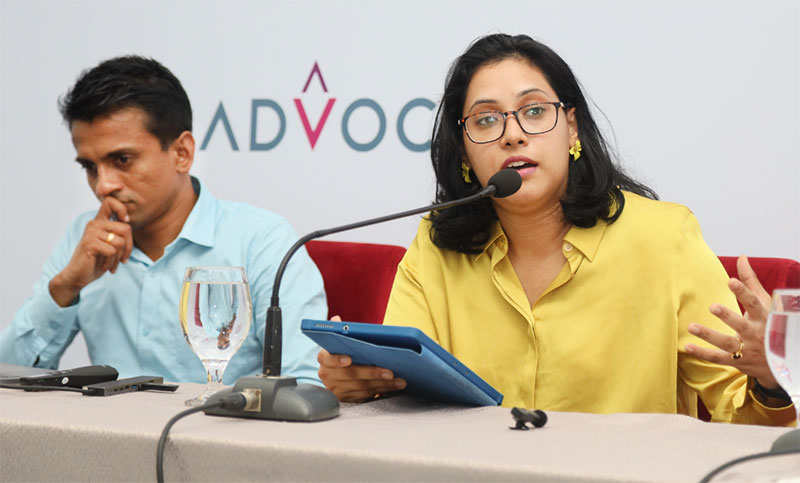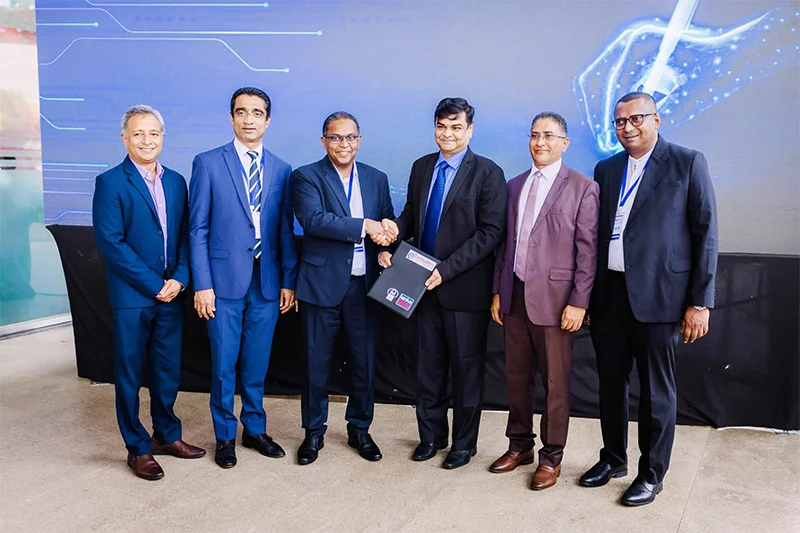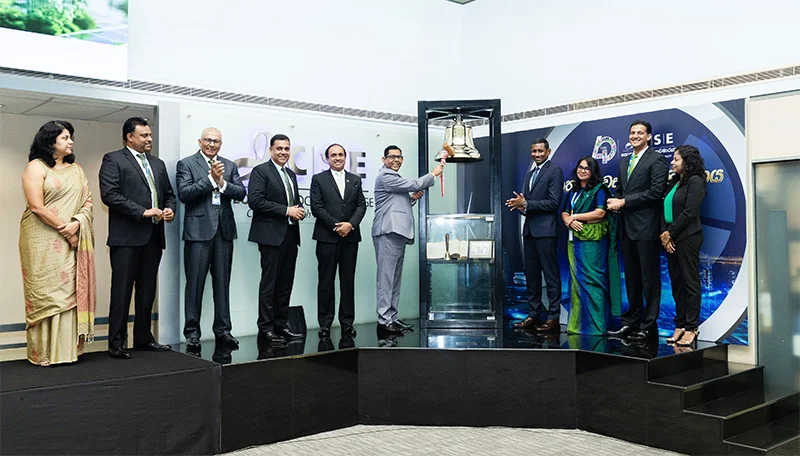Business
SOEs seen as failing SL’s ordinary citizens

By Ifham Nizam
State-Owned Enterprises (SOEs) in Sri Lanka have long served the interests of its employees and politicians, neglecting the welfare of ordinary citizens, Research Consultant at the Advocata Institute Rehana Thowfeek said.
Speaking at a recent media briefing titled, “Burden and The Urgency of State-Owned Enterprise Reform” held at the BMICH, Thowfeek emphasized the urgent need for reform, stating that despite Sri Lanka defaulting on its loan repayments for nearly two years, meaningful progress has been lacking in the country.
Thowfeek highlighted the detrimental impact state intervention in markets has on consumer welfare, attributing inefficiencies to the enrichment of politicians at the expense of taxpayers. She outlined recent reform efforts, including the passing of the SOE Reforms Act and a new Banking Act, alongside the establishment of the State-Owned Enterprise Restructuring Unit (SOERU) and the Holding Company.
However, she cautioned that the delay in addressing SOE issues poses a significant risk to Sri Lanka’s economic sustainability, noting that SOEs have become hotbeds of corruption.
CEO, Advocata Institute, Dhananath Fernando echoed these concerns, stressing the necessity for SOE reform, regardless of the upcoming election cycle. Highlighting the staggering losses incurred by key SOEs in 2022, he underscored the burden placed on taxpayers, estimating a cost of Rs. 1.7 million per registered taxpayer due to SOE mismanagement. Fernando emphasized the urgent need for restructuring, warning of worsening conditions for Sri Lankan citizens and taxpayers if action is not taken promptly.
Fernando added: ‘Despite ongoing reforms, progress has been sluggish, with reforms barely keeping pace to avert immediate crises rather than fostering long-term competitiveness. The International Monetary Fund’s recommendations, including the importance of the Holding Company and the need for skilled advisory board members, underscore the gravity of the situation.
‘Additionally, the cyclical nature of SOE debt, exemplified by Sri Lankan Airlines, poses a continuous threat to the government’s fiscal stability. Transparent divestment processes are essential to prevent further taxpayer exploitation, as politicization only exacerbates the issue.’
Financial journalist Shihar Aneez highlighted the costs of delays in reform, particularly evident in cases like Sri Lankan Airlines, where missed deadlines only escalate taxpayer burdens.
Aneez cautioned against misplaced trust in politicians’ promises, citing past failures to deliver on reform commitments. He further denounced the misuse of SOEs for political gain, noting that taxpayers foot the bill for SOE losses, which are exploited for electoral purposes.
In essence, he added that the urgent need for comprehensive SOE reform in Sri Lanka cannot be overstated, as continued inaction threatens the economic well-being of the nation’s citizens.
Business
Sri Lanka rolls out digital signature framework to accelerate digital economy

Sri Lanka has launched a National Digital Signing Framework, a foundational initiative paving the way for paperless governance. This strategic move eliminates the need for physical signatures and documents in government transactions, aiming to dramatically enhance efficiency, transparency, and accessibility for citizens and businesses. An analyst said that this could accelerate Sri Lanka’s governance and commercial relationships with other countries as traditional signatures make room for digitally signed documents accepted by the government.
In this significant step toward accelerating Sri Lanka’s digital transformation, eMudhra, a global leader in digital identity and security solutions, has entered into a strategic partnership with LankaSign the only Certification Service Provider (CSP) in the country that complies with the Electronic Transactions Act No. 19 of 2006, operated by LankaPay, Sri Lanka’s national payment network during recently held inauguration of INFOTEL 2025 ICT exhibition at Sirimavo Bandaranaike Exhibition Hall.
The LankaSign–eMudhra partnership brings together the strengths of LankaPay’s legally recognized digital signing certificates issued via LankaSign – the pioneering digital Certification Service Provider in Sri Lanka established in 2009 – and eMudhra’s globally trusted emSigner platform, which has enabled secure digital document signing across more than 68 countries since 2008. Through this collaboration, Sri Lankan citizens and businesses will be able to experience a seamless, secure, and user-friendly digital signing solution, enabling documents to be signed anytime, anywhere using iOS, Android, or web-based applications.
This partnership with eMudhra aligns with the national agenda to promote adoption of digital documents, reduce dependency on paper-based processes, and facilitate a more efficient, transparent, and secure digital economy. This collaboration aims to support the government’s long-term digitalization roadmap by enabling a secure digital documentation layer essential for e-government services, digital finance, and digital transformation.
By Sanath Nanayakkare
Business
Dialog & University of Moratuwa launch open-source Sinhala Voice Model

In a significant move to accelerate technological innovation in Sri Lanka, Dialog Axiata PLC, Sri Lanka’s #1 connectivity provider, and the Dialog-University of Moratuwa (UoM) Research Lab, has announced the release of SinhalaVITS, a state-of-the-art, open-source Text-to-Speech (TTS) model for the Sinhala language.
This non-commercial initiative delivers a powerful, high-quality, and natural-sounding Sinhala voice model to the public, making it freely accessible to developers, researchers, and students. The model is available for download on Hugging Face, the world’s largest open-source AI community, empowering anyone to build and experiment with advanced voice technology.
The SinhalaVITS model is the result of a deep-rooted collaboration that unites Dialog’s industry leadership with the academic excellence of the Dialog–UoM Mobile Communications Research Lab, fulfilling a vital need within Sri Lanka’s tech community for accessible, high-performance tools that drive innovation. By removing cost and licensing barriers tied to proprietary software, Dialog is empowering developers and researchers while fostering a more inclusive, collaborative, and future-ready AI ecosystem. This initiative further reinforces Dialog’s commitment to advancing Sri Lanka’s digital future—investing in open-source technology and academic partnerships to nurture local talent and lay the foundation for next-generation digital services built by Sri Lankans, for Sri Lankans.
Business
HNB signals ESG commitment with oversubscribed LKR 10 bn sustainable bonds

The Hatton National Bank PLC (HNB PLC) commemorated raising LKR 10 bn with its first ever issuance of sustainable bonds by way of a market opening ceremony conducted on the trading floor of the Colombo Stock Exchange (CSE) last week.
The 9th December issuance of 100 mn listed, rated, unsecured senior sustainable bonds, in five year and seven-year tenors, with a par value of LKR 100/- and rated “AA-(lka)” By Fitch Ratings Lanka Limited, was oversubscribed on the same day, raising LKR 10 bn.
Sustainable bonds, which were launched in Sri Lanka for the first time this year, are part of a series of GSS+ (Green, Social, Sustainable & Sustainability Linked) debt instruments. The proceeds of the sustainable bond issuance will be used by HNB PLC to fund the development and installation of solar, wind, biomass and hydropower projects, improve energy efficiency through retrofits, fund the construction of recognized ‘green’ buildings, fund investment infrastructure for water treatment, water conservation and efficient agricultural water technologies, finance housing development, healthcare and education for low- and middle-income families, promote women entrepreneurship, amongst others initiatives.
Damith Pallewatte, Managing Director and CEO of HNB PLC, who was the ceremony’s keynote speaker remarked upon the issuance of sustainable bonds commenting: “HNB’s LKR 10 bn sustainable bond issuance is a landmark step in advancing Sri Lanka’s sustainability agenda.”
Delivering his welcome address at the event, Rajeeva Bandaranaike, CEO of CSE, remarked upon rising corporate engagement in CSE’s GSS+ debt instruments stating: “HNB’s Sustainable Bond represents a welcome new addition to the list of leading Sri Lankan financial instruments that have set the example for the success of CSE’s GSS+ Bond framework which have allowed the capital market to operate as a financing vehicle for sustainable and socially equitable projects.”
-

 News2 days ago
News2 days agoMembers of Lankan Community in Washington D.C. donates to ‘Rebuilding Sri Lanka’ Flood Relief Fund
-

 News7 days ago
News7 days agoPope fires broadside: ‘The Holy See won’t be a silent bystander to the grave disparities, injustices, and fundamental human rights violations’
-

 News7 days ago
News7 days agoPakistan hands over 200 tonnes of humanitarian aid to Lanka
-

 Business6 days ago
Business6 days agoUnlocking Sri Lanka’s hidden wealth: A $2 billion mineral opportunity awaits
-

 News6 days ago
News6 days agoArmy engineers set up new Nayaru emergency bridge
-

 News7 days ago
News7 days agoOfficials of NMRA, SPC, and Health Minister under pressure to resign as drug safety concerns mount
-

 News7 days ago
News7 days agoExpert: Lanka destroying its own food security by depending on imported seeds, chemical-intensive agriculture
-

 Editorial7 days ago
Editorial7 days agoFlawed drug regulation endangers lives



















